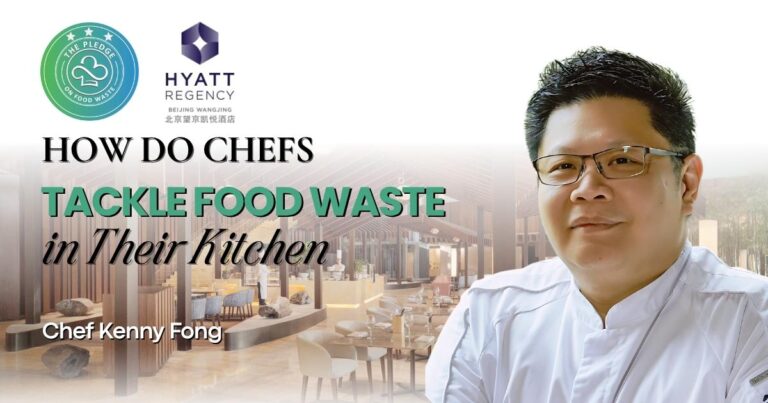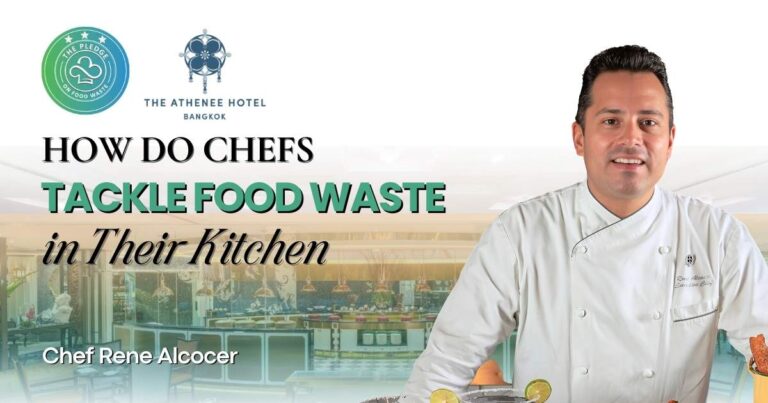Nestled in Victoria’s picturesque Inner Harbour, the Pendray Inn and Tea House offers a memorable stay with its charming atmosphere and elegant Afternoon Tea experience.
In the third feature of our How Do Chefs series, we visit the Pendray Inn and Tea House, where food waste reduction is more than a policy. At the helm is Chef Onille Pitogo, whose thoughtful approach to cooking, leadership, and sustainability is transforming how her kitchen operates.

Growing up, wasting food was never an option. We were taught to use what we had, stretch it and respect the work that went into every ingredient. That mindset followed me into the kitchen. I don’t see food as disposable. It is something valuable, something that deserves care from start to finish.
As the Chef of the Pendray Inn and Tea House, my approach to food waste prevention begins with thoughtful menu planning. We design dishes that use cross-functional ingredients, focusing on seasonal, sustainable produce to support local farmers and reduce our carbon footprint. These ingredients also tend to be higher in quality, fuller in flavor, and have a longer shelf life, which helps minimize spoilage.
In kitchens of all sizes, having strong systems in place is essential to keep food fresh and reduce waste. We conduct regular inventory checks based on volume and order only what we need. Ingredients are stored at the correct temperatures, and we strictly follow the FIFO (First In, First Out) system. Everything is clearly labeled with preparation dates, and new stock is always placed behind older inventory. Each day, we create a prep list based on reservations to ensure we prepare only what’s necessary.
Staff are also trained in safe food handling and proper stock rotation practices. While this level of detail may seem demanding, it’s this commitment that has allowed us to dramatically reduce food waste.
Our menu changes with the seasons not only to highlight local ingredients but also to keep our offerings fresh and exciting for our guests. Our servers are trained to emphasize the seasonality of our afternoon tea items and to speak knowledgeably about our sustainability efforts, including our dedication to reducing food waste. One food waste tip I wish I had learned earlier is to repurpose bread ends and trimmings into breadcrumbs, croutons, or bread pudding. What once seemed like scraps now play a valuable role in our waste reduction strategy and the impact has been surprisingly significant.

My leadership style in the kitchen has evolved.
Initially, I felt pressured to emulate male-led kitchen dynamics but being a woman in this industry has ultimately shaped my authentic approach. I realized true leadership is knowing your values. Now, I lead with a balance of structure and support. I always say I treat my team like a mother because I listen to them and care about how they are doing. I push them to be better, and I’m there when things get tough. You can be nurturing and still run a tight, professional kitchen. I lead my team with heart and hold them to their potential. I also strive to be resourceful in many ways whether it’s making the most out of limited tools or ingredients. So, minimizing food waste isn’t just about sustainability for me; it’s also about respect for the food, for the farmers and for all the people. Minimizing food waste is a responsibility.
Chef Onille’s leadership has created a culture her team is proud to be part of, and guests are increasingly curious and appreciative of their sustainability efforts. Beyond day-to-day impact, this approach adds real business value, especially during group bookings and site inspections, where sustainability and food waste reduction are top concerns.
The Pendray Inn and Tea House proves that reducing food waste isn’t just responsible—it’s good business.
Ready to join the movement?
Learn more about The PLEDGE: thepledgeonfoodwaste.org
Follow The PLEDGE for more inspiring stories:
Follow Pendray Inn & Tea House:






